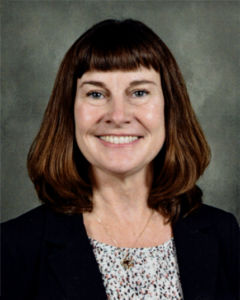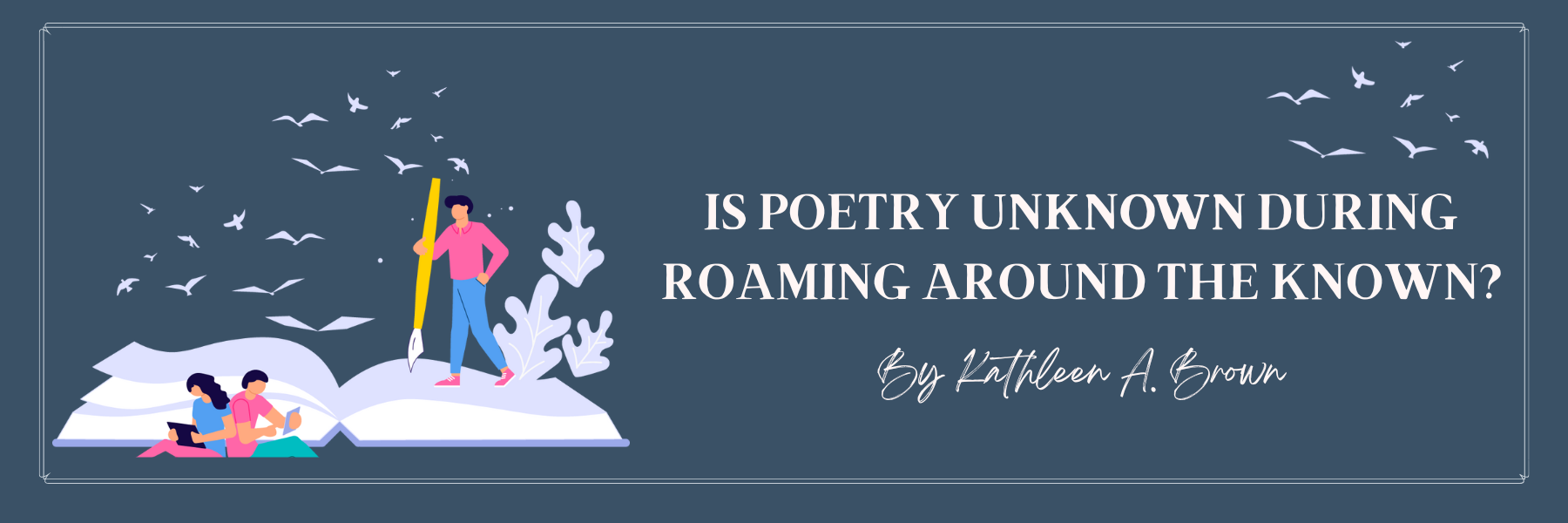BLOG
Is Poetry Unknown During Roaming Around the Known?
By Kathleen A. Brown
Are you ready to rejuvenate and revive your Roaming Around the Known Sessions? Why not consider using poetry with your students?
How is poetry defined?
Britannica describes poetry as follows:
Poetry, literature that evokes a concentrated imaginative awareness of experience or a special emotional response through language chosen and arranged for its meaning, sound, and rhythm.
Roaming Around the Known is the perfect time to introduce poetry to students. Poetry is fun, lyrical, silly, humorous, and music to the ears.
Poetry read aloud fosters phonemic awareness, it carries meaning and students hear how language sounds and works.
During Roaming Around the Known, the teacher will take the lead in the reading and writing of poems.
Examine what the child can do first, by examining the outcomes on the Observation Survey.
Marie Clay reminds us on page 30 of Literacy Lessons Designed for Individuals, “The observation tasks used for assessment only sample some behaviours and ‘Roaming around the known’ gives the teacher a further opportunity to observe more of the child’s way of responding.”
On page 29 of Literacy Lessons Designed for Individuals, Marie Clay encourages us to “Offer him many opportunities to learn on a wide range of easy tasks and observe carefully how he engages with them. You do not need to assume that he has to discover these things alone. Share the task of reading and writing by doing for the child what he cannot do for himself. That provide him with a demonstration of how to carry out the task and leaves him with the feeling that there is more to learn.”
Caution: “The teaching should not start where the teacher is but where the child is! Do not deliberately teach him any new items or behaviours.” LLDI page 29
Often poems are short, and students feel more comfortable attempting to read them. Most students love to author their own poems and share them with others.
Start off with familiar topics or things of interest to your students. Children love to read and write about themselves, their families, friends, pets, sports, food, culture, and traditions.
Do not be rigid about poetry form or structures. Let children express themselves in short verse. Poetry does not always have to rhyme.
In the Roaming Around the Known section on page 32 of Literacy Lessons Designed for Individuals, Clay emphasizes, “If you have caught the child’s attention he will notice, learn from, and soon want to engage in, some of the things he sees you do. Allow him space and scope to do this. He needs to be able to find what he already knows being used here and there in all kinds of different settings.”
Do we expect students to be poets when they leave Roaming Around the Known? Of course not. The goal is to share the love of language and how it works and flows. Listening to poetry, reading poetry, and writing poetry is a form of expression that brings delight and pure joy.
If your students are responding to poetry during Roaming Around the Known, consider creating a poetry wall in the literacy room or the classroom. Students enjoy making books, so why not create poetry books to share with classmates, friends, and family? A novel and fun activity is to generate pocket-size poems. Students read their poems with staff members and friends during recess and lunch. A “poem in my pocket” is also a fun way to encourage reading at home and engage family members.
Examine your Reading Recovery book collection. I bet you will find many books that are written with rhyme. Explore your personal read-aloud and poetry collections. It is likely you will find some valuable treasures. Visit your school or public library to gather more resources for Roaming Around the Known and beyond.
As the students start to understand how rhyme works orally, the students can learn, more about onset and rhyme to construct words, which can lead to writing poetry with support.
Children are naturally curious about making meaning, playing with words, and using their voices to express themselves.
I hope I have inspired you to incorporate poetry into your Roaming Around the Known sessions and into lessons.
Please share your student’s poems with me using the Reading Recovery community page. I cannot wait to read their works of art and expression.
I will leave you with some poems I created about learning how to read and write.
Happy Reading and Writing!
Reading
I want to learn how to read.
My brother knows how to read, so does my sister.
My friends know how to read too.
Will I ever learn to read?
The black squiggly marks on the page are foreign.
The pictures help, but I hopelessly have no success.
I cannot do this.
I will never be a reader!
My reading teacher encourages me to try.
She believes in me.
I do not believe in myself.
She doesn’t give up on me.
My reading teacher is my guide.
She picks out books I can read.
She gently nudges me to keep going.
I can read about pirates, spiders, and outer space.
I am doing it. I am reading!
Thank you, teacher, for being by my side.
Now I can be like my brother, my sister and everyone else.
I am full of possibilities, opportunities, and dreams.
Writing
An idea, an image
Head spinning with thoughts.
Reluctantly I commit my words to paper.
What if my words are dull and have no meaning?
Will anyone read my story?
I hope someone can relate to my heart.
My teacher encourages me to keep putting down my thoughts.
I cannot help myself; I do not want to stop writing MY story.
My printing is large and not in the lines.
My spelling even worse.
I try to remember to use punctuation.
Drawing pictures helps me see my story.
Is that my story hanging in the hallway?
I burst with excitement and pride.
Writing has not come easy for me.
I guess I can be a writer.
Writing brings me joy.
Writing helps me express my feelings.
Writing helps me feel free.
Writing is me

Kathleen A. Brown has worked for 37 years as a classroom teacher, literacy specialist, staff developer, and Reading Recovery teacher. She has served as the Reading Recovery teacher leader in Long Beach Unified School District for the last 22 years. Kathleen has provided early literacy training and coaching for the district and has presented at local, state and national conferences.
THE JOURNAL OF READING RECOVERY
Spring 2024
Constructing a More Complex Neural Network for Working on Written Language That Learns to Extend Itself by Carol A. Lyons
Reading Recovery IS the Science(s) of Reading and the Art of Teaching by Debra Semm Rich
Predictions of Progress: Charting, Adjusting, and Shaping Individual Lessons by Janice Van Dyke and Melissa Wilde
Teachers Designing for Context: Using Integrity Principles to Design Early Literacy Support in Aotearoa New Zealand by Rebecca Jesson, Judy Aitken, and Yu Liu




